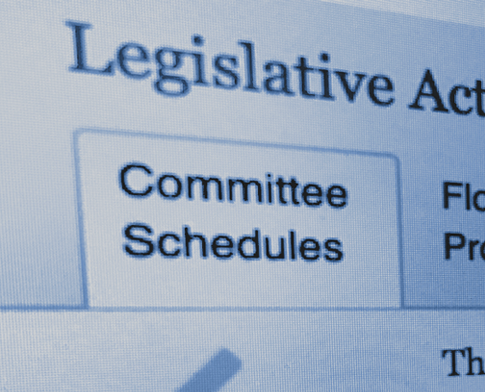| At the direction of President Trump, U.S. Trade Representative (USTR) Robert Lighthizer notified Congress that the Trump administration plans to negotiate three separate trade agreements with Japan, The European Union, and the United Kingdom. The notification follows the procedures outlined in the Bipartisan Congressional Trade Priorities and Accountability Act of 2015, which is often referred to as Trade Promotion Authority (TPA). The TPA requires ongoing consultations with Congress and USTR will publish notices in the Federal Register public comments section regarding the direction, focus, and content of the trade negotiations.[1]
The US-Japan Trade Agreement would link the world’s first and third largest economies, which represent about 30% of global Gross Domestic Product. The goal for these negotiations is to “further expand trade and investment between” the two countries, “recognize the importance of a strong, stable, and mutual beneficial trade and economic relationship,” and “address both tariff and non-tariff barriers to achieve fairer, more balanced trade.”
The US-EU Trade Agreement seeks to “strengthen the US-EU trade relationship,” which accounts for over $1.1 trillion in annual two-way trade. As in the US-Japan agreement, the negotiations will seek “to address both tariff and non-tariff barriers, and to achieve fairer, more balanced trade.”
The US-UK Trade Agreement would link the world’s first and fifth largest economies and further expand the existing relationship between the two nations “by removing existing goods and services tariff and non-tariff barriers by developing cutting edge obligations for emerging sectors where US and UK innovators and entrepreneurs are most competitive.” While the UK will not be able to negotiate a trade deal until they have officially left the European Union on March 29, 2019, the UK Secretary of State for International Trade, Dr. Liam Fox, and USTR Lighthizer convened the US-UK Trade and Investment Working Group in July 2017 “to provide commercial continuity for UK and US businesses, workers, and consumers.”
| US-Mexico-Canada Agreement (USMCA) Watch |
|
| On Tuesday (16 Oct), Senate Majority Leader Mitch McConnell (R-KY) said the vote to approve the USMCA will be a “next year issue” due to procedural issues. The Senate and House are out of session until after the November 6 midterm elections, which limits the number of working days left in the 115th Congress. When Congress returns, they will be in a ‘lame duck session,’ which occurs when members who were not re-elected or decided not to run for re-election return to Congress after the midterms until the new Congress is sworn in.[2] McConnell stated his priorities for the lame duck session will be confirming judges, funding the government and potentially Trump’s border wall, and passing the Farm Bill.[3]
The U.S. generic pharmaceuticals industry, led by the Association for Affordable Medicines, is concerned about the 10-year exclusivity provision for biosimilars which covers all three countries. The concern is that Mexico would raise its current 5-year exclusivity term to 10 years and Canada would go from 8 to 10 years. AAM is asking for changes to USMCA that would hew more closely to U.S. law (such as Hatch-Waxman). They want what is known as a “Bolar exemption,” which permits research and development of biosimilars by putative competitors prior to the end of the 10-year term. This allows a competitor to come to market upon the expiration of the exclusivity period, rather than having to wait for 10 years before beginning the long and expensive process of developing a competing biosimilar product. The first-to-market competitor also gets a six-month exclusivity benefit, which helps monetize the expense of developing the biosimilar. Discussions on this matter are ongoing with Congress.
The automotive industry is generally supportive of USMCA, but there are some specific concerns regarding steel and aluminum tariffs. At a panel discussion on Thursday (18 Oct), American Automotive Policy Council President Matt Blunt said “our intent is to encourage Congress to pass the USMCA. We think there are some improvements in the agreement and that it will ensure that we have an agreement going forward that allows North America to be a cohesive platform to produce automobiles.”[4] On the topic of steel and aluminum tariffs, Blunt said his groups “highest priority right now is to encourage the administration to really urgently work with Canada and Mexico to address the steel and aluminum 232 tariffs. Our biggest disappointment thus far in the negotiation is that it wasn’t addressed in the agreement when it was announced.”[5] While debates over the 232 tariffs are ongoing, expect the issue of potential exemptions for Canada and Mexico to be addressed after the USMCA is signed.
Intellectual property (IP) protection groups are hailing the USMCA as an agreement that will ensure the U.S. leads in IP-intensive industries for the next generation. The American Creative, Technology, and Innovative Organizations Network (ACTION for Trade) issued a press release this week praising the deal. “The USMCA represents a marked improvement of many of the intellectual property protections critical to innovators in the Trans-Pacific Partnership in important ways.”[6]
| Comprehensive and Progressive Trans-Pacific Partnership (CPTPP) |
|
| On Wednesday (17 Oct), Australia became the fourth country to ratify the CPTPP.[7] They join Mexico, Japan, and Singapore, who were part of the first group to ratify the agreement. According to the Government of Australia media release, “The landmark agreement is one of the most comprehensive trade deals ever concluded and strips 98 percent of tariffs for 11 countries with a combined GDP of more than 13.8 trillion USD and close to 500 million consumers. Independent modelling shows Australia is forecast to see $15.6 billion in net annual benefits to national income by 2030 from the TPP-11.”
The CPTPP was signed by 11 member states: Australia, Brunei, Canada, Chile, Japan, Malaysia, Mexico, New Zealand, Peru, Singapore, and Vietnam. It will only enter into force 60 days after six of the signatories ratify it.
Canada is one step closer to ratifying the CPTPP after passing bill C-79, “An Act to implement the CPTPP,” in the House of Commons 236 to 44. Next, the bill will be debated in the Senate. Agricultural groups are encouraging the Senate to ratify the agreement quickly as it would eliminate Japanese and Vietnamese tariffs on Canadian agricultural products within five years of implementation.[8] Vietnam plans to discuss ratifying the agreement during the 14th National Assembly, which begins on October 22.[9] New Zealand and Peru are also expected to pass the CPTPP in the coming months.
| Miscellaneous Tariff Bill & Section 301 |
|
| When President Trump signed the Miscellaneous Tariff Bill Act of 2018 (MTB) into law in September, Ways and Means Chairman Kevin Brady applauded him for giving America’s workers “much-needed tax relief” and “relief for our companies on products otherwise not made in America, allowing them to grow jobs here at home.”[10] The bill amended the Harmonized Tariff Schedule (HTS) by temporarily reducing tariffs on over 1600 product lines that are unavailable in America. Many of those products were also on the list of items subject to tariffs under Section 301, which led many industries to believe those items would not be subject to the Section 301 tariffs.
However, this week, Customs and Border Protection (CBP) announced that “products of China subject to Section 301 tariffs can benefit from MTB’s suspensions and reductions for the general rate of duty, but remain subject to the 25% or 10% rate of duty imposed under Section 301.”[11] Senator Tim Kaine (D-VA) led a letter with 10 Democratic colleagues to express concerns regarding the decision not to include an exclusions application process for this round of tariffs on China. The letter asks the following questions of Ambassador Lighthizer: if the administration intends to offer an exclusions application process; how such a process would be implemented; and, if not, what the rationale is for not providing an exclusions process.[12] Specifically, senators want to know why such an exclusions process may not be offered in the third round of tariffs when such a process was included in the first and second rounds.
On the other side of the aisle, Republicans in Florida also wrote a letter to Ambassador Lighthizer urging an exemption for Colombia. Led by Senator Marco Rubio (R-FL), members of the Florida delegation said that “negotiations with Colombia should be a priority.” They detailed the reasons why mutually-beneficial trade practices for steel and aluminum facilitate American trade goals and improve U.S.-Colombian relationships. The letter requests explicitly that Ambassador Lighthizer expedites exemptions with Colombia “and with allies and partners around the world.”[13] The full letter can be read here.
| World Trade Organization Dispute Resolution Panels |
|
| The United States has blocked the appointment of new World Trade Organization (WTO) judges, and the United States is asking the WTO to set up an independent dispute resolution panel to reach an agreement on the issue. The disputes, which center around the international conflict regarding steel and aluminum tariffs, have inspired several countries, including the United States and Norway, to request that the WTO examine the tariffs. Canada, Mexico, and China were also prepared to ask for such a panel.[14] The WTO has not yet commented on the ongoing dispute, but the upcoming October 29th WTO dispute meeting agenda shows that seven WTO members will challenge the US tariffs.[15]
| [1] “Trump Administration Announces Intent to Negotiate Trade Agreements with Japan, the European Union and the United Kingdom.” USTR, 16 Oct 2018. https://ustr.gov/about-us/policy-offices/press-office/press-releases/2018/october/trump-administration-announces
[2] “Sessions of the Senate.” United States Senate. https://www.senate.gov/general/Features/Sessions.htm
[3] Jenny Leonard. “McConnell Rules Out Vote on New Nafta Trade Deal Before 2019.” Bloomberg, 16 Oct 2018. https://www.bloomberg.com/news/articles/2018-10-16/mcconnell-says-senate-vote-on-new-nafta-deal-to-wait-until-2019
[4] Brian Bradley. “Industry Panel Voices Support for USMCA.” American Shipper, 18 Oct 2018. https://www.americanshipper.com/main/full/industry-panel-voices-support-for-usmca-72733.aspx?source=Big4
[5] Sabrina Rodriguez. “Trump’s USMCA victory lap hits roadblocks over tariffs.” POLITICO, 19 Oct 2018. https://www.politico.com/newsletters/morning-trade/2018/10/19/trumps-usmca-victory-lap-hits-roadblocks-over-tariffs-380287
[6] Brian Pomper. “Statement on the United States-Mexico-Canada Agreement.” PRNewswire, 18 Oct 2018. https://www.prnewswire.com/news-releases/action-for-trade-statement-on-the-united-states-mexico-canada-agreement-300733576.html
[7] “Australia becomes fourth signatory country to ratify CPTPP.” Vietnam Plus, 17 Oct 2018. https://en.vietnamplus.vn/australia-becomes-fourth-signatory-country-to-ratify-cptpp/140295.vnp
[8] Diego Flammini. “Ag groups want speedy CPTPP ratification.” Farms.com, 17 Oct 2018. https://www.farms.com/ag-industry-news/ag-groups-want-speedy-cptpp-ratification-726.aspx
[9] “National Assembly likely to approve CPTPP.” Vietnam News, 8 Oct 2018. https://vietnamnews.vn/economy/467383/national-assembly-likely-to-approve-cptpp.html#MdvX50rsk7oPmGRy.97
[10] “Brady Statement on MTB Becoming Law.” Ways and Means. 13 Sept 2018. https://waysandmeans.house.gov/brady-statement-on-mtb-becoming-law/
[11] “CBP Implementation of H.R. 4813, The Miscellaneous Tariff Bill Act of 2018.” US Customs and Border Protection, 12 Oct 2018. https://csms.cbp.gov/viewmssg.asp?Recid=23816&page=1&srch_argv=&srchtype=&btype=newace&sortby=&sby=
[12] Senator Tim Kaine et al. “Tariff Decision Letter.” United States Senate, 18 Oct 2018. https://www.kaine.senate.gov/imo/media/doc/Kaine%20Tariff%20Decision%20Letter%2010.18.18.pdf
[13] Senator Marco Rubio et al. “Miami Dade Delegation Letter to USTR Lighthizer.” United States Congress, 18 Oct 2018. https://www.rubio.senate.gov/public/_cache/files/c35952dd-4eee-4f95-97b4-1f1e6c0e5888/134C88418B44928FD8540DD48E7CAD71.18.10.18—miami-dade-delegation-letter-to-ustr-lighthizer-and-doc-sec.-….pdf
[14] “US Takes Steel Aluminum Tariff Fight to WTO.” Reuters, 18 Oct 2018. https://www.voanews.com/a/us-takes-steel-aluminum-tariff-fight-to-wto/4620123.html
[15] “Both sides escalate US tariffs fight at the WTO, agenda confirms.” Reuters, 19 Oct 2018. https://www.reuters.com/article/usa-trade-wto/both-sides-escalate-us-tariffs-fight-at-the-wto-agenda-confirms-idUSL8N1WZ3CP |
|
|
|
|
|
|
|
|
|


